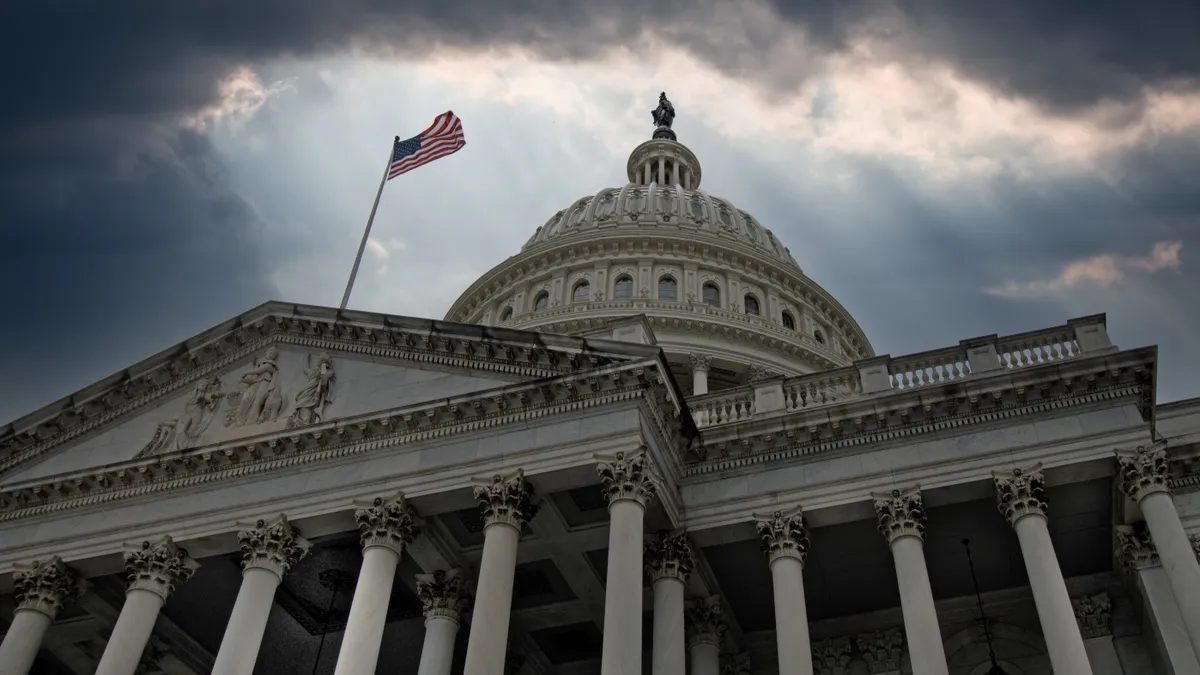Dive Brief:
- CFOs shy away from risk taking more than at any time since 2009, wary of inflation, the economic outlook, conflict abroad and the potential outcome of the November election, Deloitte found in a quarterly survey.
- Only 12% of CFOs surveyed across North America view current conditions as conducive to taking greater risks compared with 26% in the second quarter and 41% in Q3 2023, Deloitte said. Nearly three out of five CFOs (58%) believe the Nov. 5 elections will prove “extremely or very consequential” for their business, while only 19% believe the economy across North America will improve in the next year, Deloitte said.
- “The upcoming election may present the most significant changes of all” to business performance, Deloitte said, noting potential shifts in immigration law, trade policy, labor law, and tax rates and capital expenditure deductibles.
Dive Insight:
The Conference Board’s Leading Economic Index bolstered the case for CFO caution, declining in August for the sixth consecutive month on factors including gloomy consumer expectations and declining new orders for materials and consumer goods, the board said Thursday.
“The LEI continued to signal headwinds to economic growth ahead,” according to Justyna Zabinska-La Monica, the Conference Board’s senior manager for business cycle indicators.
Economic growth will likely slow during “the second half of this year as higher prices, elevated interest rates and mounting debt erode domestic demand,” Zabinska-La Monica said, citing a Conference Board forecast.
The economy will likely quicken next year if the Federal Reserve further reduces borrowing costs beyond its easing announced Wednesday, Zabinska-La Monica said.
The central bank on Wednesday cut the main interest rate by a half percentage point to a range between 4.75% and 5%, citing progress in slowing inflation toward the central bank’s 2% goal from more than 9% two years ago.
Fed officials expect to trim the federal funds rate to 4.4% by December and to 3.4% by the end of next year, according to the median of their projections released Wednesday.
Fed Chair Jerome Powell on Wednesday rejected predictions of a downturn, expressing optimism that differs from the pessimism flagged by Deloitte.
“I don’t see anything in the economy right now that suggests that the likelihood of a recession — sorry, of a downturn — is elevated,” he said at a press conference. “You see growth at a solid rate, you see inflation coming down and you see a labor market that’s still at solid levels.”
Fed officials, in their median projection, see gross domestic product growing 2% this year and in both 2025 and 2026.
“If you look at forecasters or talk to companies, they'll say that they think 2025 should be a good year,” Powell said.
The economy will probably expand at a 2.9% annual rate during the third quarter, the Atlanta Fed said Wednesday. GDP grew at annual rates of 1.4% in the first quarter and 3% in the second quarter, according to the Bureau of Economic Analysis.
While concerned about the impact of the coming election on business prospects, CFOs most want the federal government to remove obstacles to retaining a skilled workforce, Deloitte said. They want officials to help overcome wage inflation, talent shortages and regulatory obstacles.
About one out of three CFOs identified labor and employment regulations as having the biggest impact on their business outlook, including a Federal Trade Commission ban on non-compete clauses and restrictions on non-disclosure agreements, according to Steve Gallucci, leader of Deloitte’s CFO Program.
Also, “geopolitics remains a real concern for CFOs,” ranking near or at the top of their external worries in recent quarterly surveys, Gallucci said Thursday in an email response to questions. “CFOs really do not like uncertainty.”
Deloitte surveyed 200 CFOs at companies in five industries and with annual revenues of at least $1 billion.















